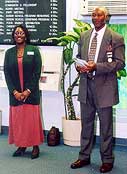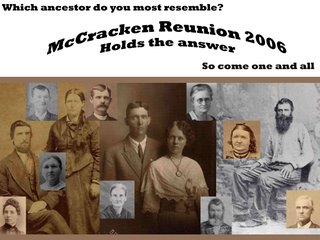
Fear not, for I have redeemed you; I have called you by name: you are mine. When you pass through the water, I will be with you; in the rivers you shall not drown. When you walk through fire, you shall not be burned; the flames shall not consume you. For I am the LORD, your God, the Holy One of Israel, your savior. - Isaiah 43:1-3
That's me at a much younger age... and wearing something different from a clerical collar and suit.
I rarely watch movies or television shows about firefighters; I was a firefighter and EMS responder for over 12 years, and I either get bothered about technical inaccuracies or too caught up in the emotions. But I watched a good movie the other night;
Ladder 49. A little bit about the movie:
Under the watchful eye of his mentor Captain Mike Kennedy (John Travolta), probationary firefighter Jack Morrison (Joaquin Phoenix) matures into a seasoned veteran at a Baltimore fire station. Jack has reached a crossroads, however, as the sacrifices he's made have put him in harm's way innumerable times and significantly impacted his relationship with his wife and kids. Responding to the worst blaze in his career, he becomes trapped inside a 20-story building. And as he reflects on his life, now Assistant Chief Kennedy frantically coordinates the effort to save him.
I went into several burning buildings in my life, and I always prayed the words above from Isaiah each time. Contrary to what most people believe, firefighters are usually scared of fire – because they intimately know what it can do and how powerful it can be. I’ve never failed to be thankful that I was never seriously hurt. In all of those years I only had one close call.

Twelve years in the fire service also taught me a lot about camaraderie, teamwork, and brother/sisterhood. You put your trust into so many persons: the person on the nozzle with you, the pump operator supplying water, the rapid intervention team who will come in after you if something goes wrong, the officer in charge of the incident… the list goes on. Even weeks of training at the fire academy couldn't wholly prepare me for the real thing. I remember going into my first burning house with Jerry, a seasoned firefighter. The room next to us suddenly flashed, and I wanted to run, run, run. He put a hand on my back and said, “We’re okay. I’m not gonna let you get hurt.” And then he proceeded to teach me how to cool down a room, how to fog your nozzle stream, and how to think like the fire in order to find it and extinguish it. I learned the difference between acceptable risks and stupid risks. He helped make me a good firefighter. And I passed on the craft to others as I got older.
Most firefighter shows and movies end with a tragic death, and having officiated at three firefighter funerals myself, it’s the part I don’t want to see of the movie. The wail of bagpipes, the lineup of firefighters and engines from neighboring departments, honor guards, dress uniforms – all very impressive, and all very depressing to me.
But
Ladder 49 was a little different. A funeral takes place in a large Catholic church. In his eulogy, Chief Kennedy concludes by asking the congregation to stand and give thanks for the life of the fallen firefighter. The congregation stands, and they clapped with thunderous applause. Firefighters saluted. They walked in formation behind a fire engine that served as a hearse for the coffin. It was respectful, and it was a celebration.
It begs the question: why does the fire service, law enforcement, and the military have the best funerals?
My hunch is that it has something to do with the way we approach Christian discipleship… or more accurately, how we
don’t approach it. Churches often get a rap for being cold, unapproachable, or even downright unfriendly. Worse, it’s been said that the Church is one of the few institutions that shoots its wounded. While I might take exception with anyone saying these things to my face, the fact that they’re said means that the perception is there.
One of the tag lines for Ladder 49’s movie trailer is this:
“Everything they know, all that they love, is what they risk every day.”Man, that’s good. I wish someone had thought of it for the United Methodist Church before we adopted “Open Hearts, Open Minds, and Open Doors.”
The observation has often been made that many bars have better community life than some churches. I would place public service personnel even higher than that. Why is it that the Church abdicates to other organizations the very ideals and roles that it is supposed to excel and take a lead in? And why is everyone else taking risks while the Church plays it safe?
Kurt Vonnegut once said, “I can think of no more stirring symbol of man’s humanity to man than a fire engine.” I pray that one day, people will once again say that about the Church... and the Cross.
Pax,
Sky+
 Worship. You’re all familiar with the “Mayberry” series that was done a few years ago. Well, believe it or not, there is a “Gospel According to the Simpsons.” Is this out of my comfort zone? Sure. But in reading and preparing the material, I’m finding that it’s quite usable for worship on Sunday evenings. As we have in the past, we will begin with some informal praise singing before we dig in to study. But we will move to the Fellowship Hall for our Sunday evening worship experience. This will allow us to share more freely, have a cup of coffee or a Coke, and experience worship, study, and fellowship in a little more relaxed atmosphere. I look forward to seeing you there!
Worship. You’re all familiar with the “Mayberry” series that was done a few years ago. Well, believe it or not, there is a “Gospel According to the Simpsons.” Is this out of my comfort zone? Sure. But in reading and preparing the material, I’m finding that it’s quite usable for worship on Sunday evenings. As we have in the past, we will begin with some informal praise singing before we dig in to study. But we will move to the Fellowship Hall for our Sunday evening worship experience. This will allow us to share more freely, have a cup of coffee or a Coke, and experience worship, study, and fellowship in a little more relaxed atmosphere. I look forward to seeing you there!












